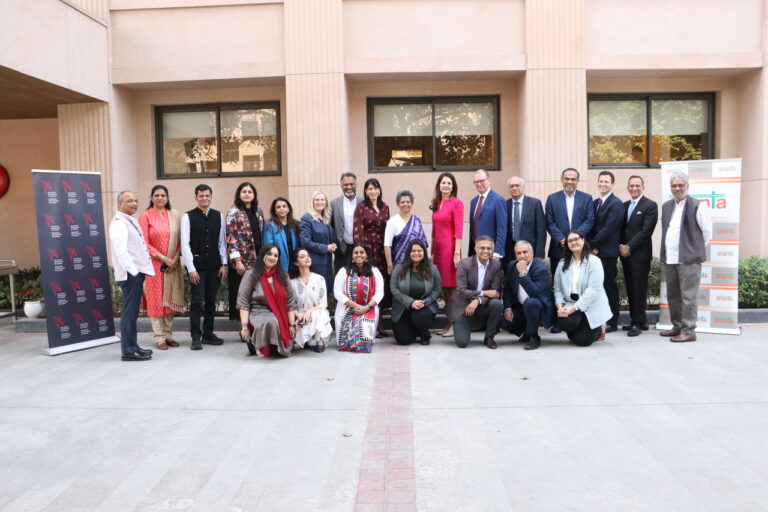IN FOCUS
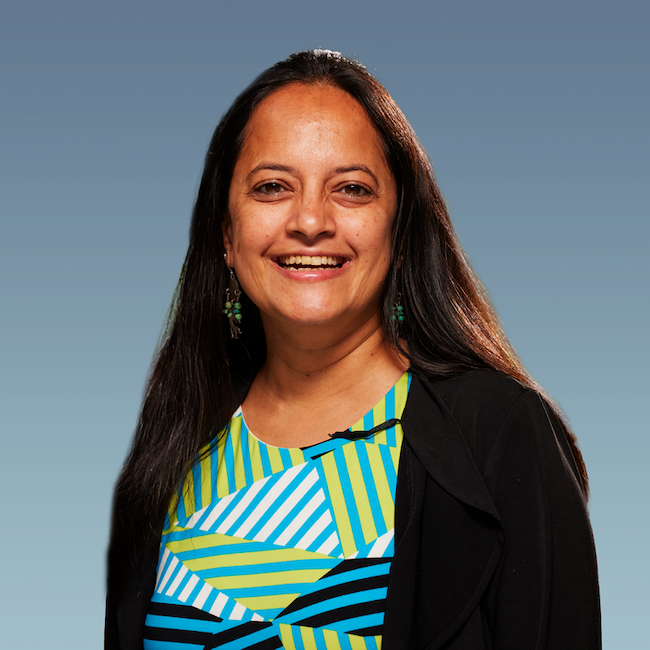
Kamalnayan Bajaj Fellow Dr Krithi K. Karanth and her Centre for Wildlife Studies both win the prestigious John P. McNulty 2025 Prize!
The John P. McNulty Prize honours leaders and organisations tackling some of the world’s most pressing social, environmental, and economic challenges with bold vision, moral courage, and lasting impact. The Centre for Wildlife Studies is the first wildlife organisation in the world to be selected as a recipient of this prize.
India has some of the highest animal-wildlife conflict in the world, with at least 100,000 incidents being documented annually. Independent surveys estimate the real number to be closer to 300,000. There are multiple reasons for these conflicts: habitat loss and fragmentation, depletion of natural prey and food sources, ad hoc land use changes, wildlife recovery without habitat expansion and finally social and demographic factors such as the increasing number of forest-dependent communities bordering wildlife reserves.
It is becoming increasingly critical to find a holistic, science-based approach to address this multi-faceted problem. The Centre of Wildlife Studies (CWS), led by its CEO, the Kamalnayan Bajaj Fellow Dr Krithi K. Karanth, is attempting to do just that. CWS is an internationally recognised centre of excellence in the areas of wildlife research, conservation, policy, and education that is on a mission to safeguard and conserve India’s rich and diverse wildlife heritage through cutting-edge research, effective conservation strategies, and community engagement.
Dr Krithi K. Karanth understands that to actively pursue its vision of a society where wildlife and humans can coexist, CWC must translate science into effective on-ground implementation. Which is why CWS works at the intersection of action research and conservation to address this complex and multi-faceted problem, firm in its belief that a more harmonious future is waiting around the corner. As she says, “By 2047, I hope that wilderness and wildlife, which today occupy only a small part of India’s collective imagination, will have a much greater presence. Achieving this will require many people working together, across sectors, to protect these ecosystems and the species within them.”
FELLOW SPEAK
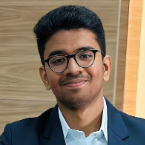
“Honest dialogue helped see complex issues in meaningful ways!”
M. Rishik Reddy on how the Emerging Leaders Fellowship gave him clarity of thought
During the Socratic dialogue, listening to and sharing perspectives with 26 diverse and thoughtful individuals deeply impacted me. The trust, honesty, and richness of those discussions helped me grow immensely.
One memorable conversation was a deep discussion about liberty, equality, and fraternity – which quickly expanded into broader themes like youth, society, and structural challenges. The different perspectives and honest dialogue helped me see the depth and complexity of these issues in new, meaningful ways.
The Emerging Leaders Fellowship gave me a new lens to view my higher studies in economics, one rooted in human impact rather than just numbers. As a future decision-maker, I now see the importance of balancing analytical tools with empathy and responsibility. This fellowship has enriched how I think about education, leadership, and service.
Currently pursuing a degree in Economics and Finance at Mahindra University, Hyderabad, Rishik aspires to build a dynamic career in investment banking, focusing on strategic growth and value creation.
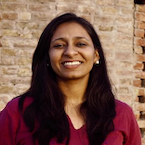
“This fellowship is especially valuable for those like me, navigating the ‘in-between’ of business and social change.”
Prerna Agarwal, Founder, Samakhya Sustainable Alternatives Pvt. Ltd; GP Birla Fellow Class 3
Samakhya Sustainable Alternatives (Pvt Ltd) is a social enterprise working with artisans and pastoralists on the margins in the remote regions of India empowering their livelihoods, crafts and lives. We are doing so by investing in textile value chain, design, technologies, markets and most significant innovation. Our products, services and interventions are driven by sustainability, circular economy, inclusion and value for money. Partnering with our ideas and actions will help improve the human conditions— particularly of women—in the most extreme regions.
What triggered your shift from advertising to the development sector, and how was the move from Delhi to Bajju?
After six years in advertising, I grew tired of the corporate grind. It paid well but didn’t help me grow as a person. I had strong opinions, was curious about people, culture, and society—but advertising didn’t offer space for that. So I quit and joined Urmul to use my marketing skills in a more meaningful way, helping rural women artisans. I didn’t know then that I would fall in love with the work and the people.
Moving from Delhi to Bajju was a cultural jolt. I encountered blatant patriarchy, lack of basic infrastructure, and deeply rooted inequalities. From pulling water by hand to managing without fans in 48-degree heat, everything changed. It taught me frugality, made me aware of how urban life takes basic resources and education for granted, and deeply shaped my values and worldview.
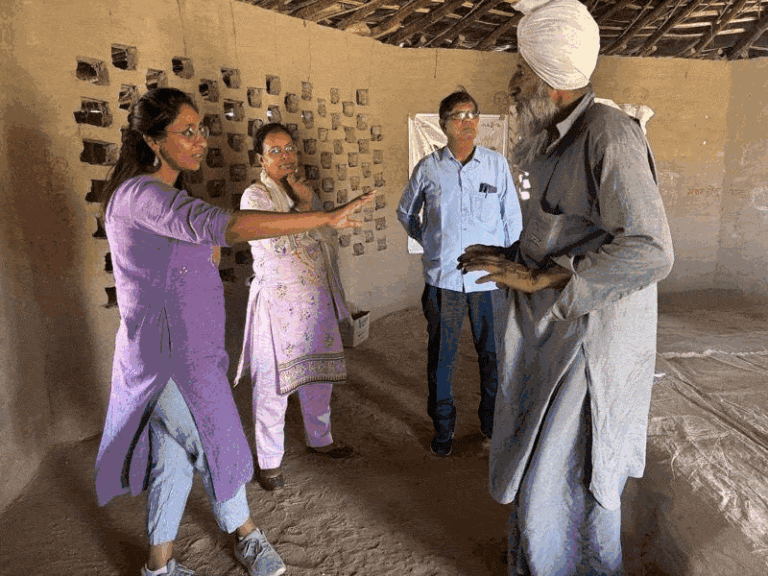
What is Samakhya Sustainable Alternatives, and how does it connect with Urmul Desert Crafts?
Urmul Desert Crafts evolved into a collective of over 3,000 artisans. From 2016 to 2020, we grew annual sales from ₹16 lakhs to nearly ₹5 crores. To sustain this, we created Samakhya—a for-profit enterprise to take the textile and fibre vertical forward. While UDC remains the artisan-led collective, Samakhya is its marketing arm.
Samakhya is where traditional craft meets modern need. For instance, we now use indigenous wool for insulation solutions in buildings. My background in advertising helped us rebrand for younger buyers, improve packaging, and shift our product positioning from older audiences to working women aged 25–45. It’s a business model rooted in community and social equity—not just profit.
What were the biggest challenges in building Samakhya?
The hardest part was raising funds. While our model excites investors, the timeline for profitability scares them. Finding “patient capital” is tough. Internally, shifting from nonprofit to for-profit thinking was a major transition for the team. Bootstrapping helped push us into this mindset faster.
Another challenge was applying creativity in a commercial way—repositioning our brand, reaching new markets, and making our traditional craft relevant to today’s consumers. But this balance of business acumen and social sensitivity is what I continue to learn every day.
What role did the GP Birla Fellowship play in your journey?
I joined the Fellowship during a transition year—from nonprofit to for-profit—and it gave me direction during that shift. The readings, mentors, and cohort helped me become more self-aware and understand my leadership style without apology. It peeled away layers of old patterns and helped me see things with new perspective.
It also reignited my reading habit and taught me to step back from day-to-day operations to see the bigger picture. Most importantly, it gave me the confidence to say “No” and stand by my values. This fellowship is especially valuable for those like me, navigating the “in-between” of business and social change.
Earlier, my goal was to “change a life.” Today, it’s to “create a better system.”
EVENTS
Resnick Aspen Action Forum 2025
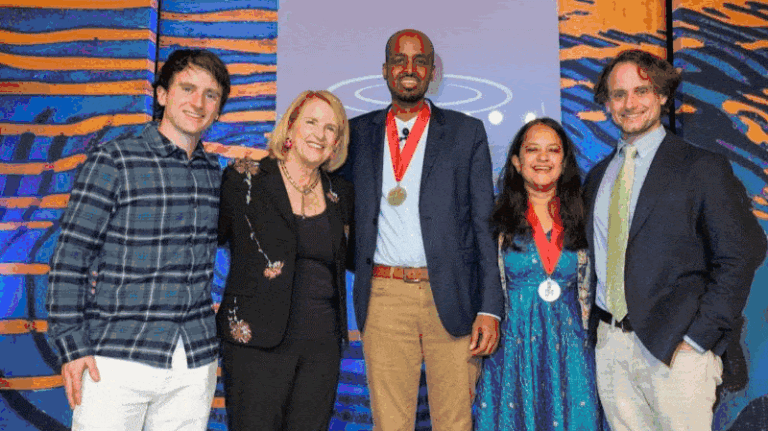
The 2025 Resnick Aspen Action Forum (RAAF), held in Aspen, Colorado from July 22–25, marked the largest gathering in the Forum’s history. More than 500 AGLN Fellows and nearly 100 young leaders from over 30 countries came together in celebration of the Aspen Institute’s 75th anniversary.
This year, we had 12 Kamalnayan Bajaj Fellows participate, adding their voices and experiences to the global dialogue.
The Forum was anchored in the theme of “leading with purpose amid uncertainty”—an urgent call to action in a world grappling with political polarization, climate change, and technological disruption. Participants explored how leaders can act with moral clarity while holding space for ideological humility—staying true to their values while listening deeply to others.
Key Highlights
- McNulty Prize Ceremony: The annual celebration honored extraordinary leaders driving systemic change. Among the laureates was Krithi Karanth, recognized for her pathbreaking work in wildlife conservation and community engagement.
- Nothing to See Here: Watts (Film Premiere): A powerful documentary on South Los Angeles illustrated how community-led storytelling and engagement drove a 90% reduction in homicides.
- Impact Sessions: Fellows participated in interactive sessions tackling pressing global challenges—from health equity and education access, to peacebuilding and human rights, to media transformation and the future of democracy.
- Launch of AGLN Connect: A new digital platform was unveiled to strengthen connections across the Aspen Global Leadership Network, enabling Fellows to find collaborators, share resources, and sustain momentum beyond the Forum.
The Forum culminated with a deeply moving Closing Plenary, “The Action Imperative.” Fellows took to the stage to share their Commitments to Action—bold pledges to address the urgent issues of our time. These ranged from scaling grassroots climate initiatives and reimagining education systems, to investing in peacebuilding efforts and strengthening civic trust. The energy and inspiration of Aspen were palpable, reminding everyone that the Resnick Action Forum is not just a gathering—it is a springboard for impact.
Kamalnayan Bajaj Fellowship – Final Seminar & Graduation
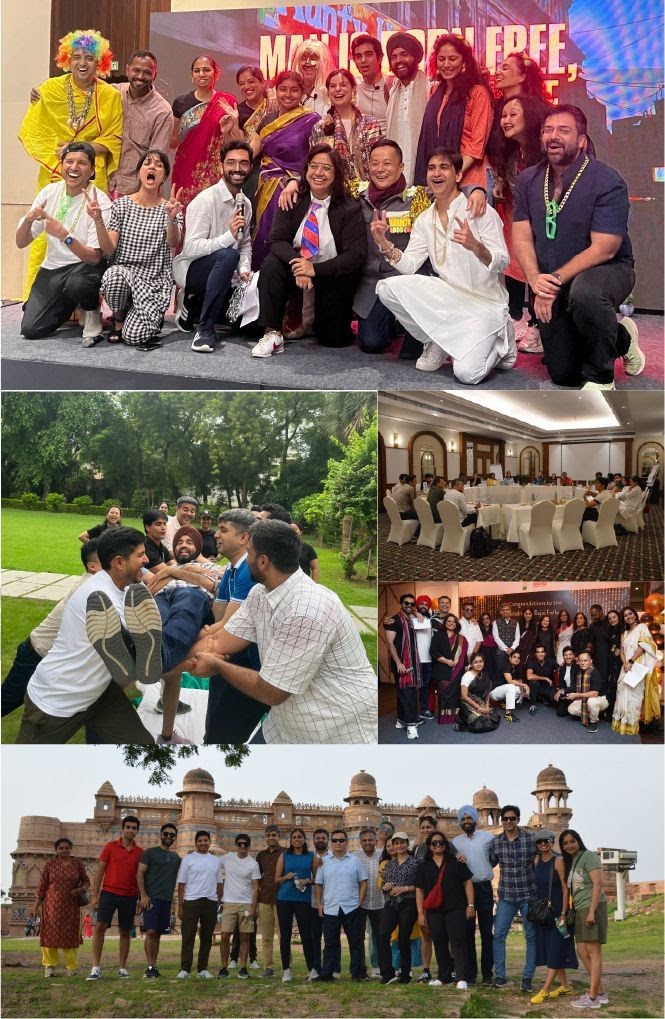
The Kamalnayan Bajaj Fellowship Class 10 “The Xtremists” came together for their fourth and final seminar, The Promise of Leadership, held from August 12–17, 2025, in Goa. This seminar, the most reflective in the series, gave Fellows the opportunity to look back on their leadership journeys, share learnings from their ventures, and engage in deep conversations on themes such as work-life balance, community involvement, and personal legacy.
On 16 August 16 2025, 19 Fellows graduated, marking the completion of their formal fellowship journey. As they step forward from success to significance, they are now poised to embrace the next phase of their lifelong leadership journeys.
Interaction with Stace and James
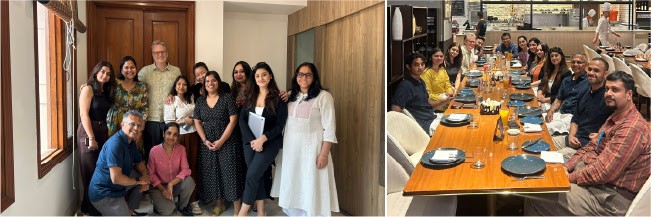
The Ananta team had the pleasure of meeting Stace Lindsay, Executive Vice President for Leadership at the Aspen Institute, and James Abraham, Founder and Director of Mynzo Carbon, followed by an engaging lunch. The interaction was an opportunity to share the work we do at Ananta in building values-based leadership, creating platforms for dialogue, and fostering communities of practice. Stace also spent time with the GP Birla Fellows, exchanging reflections on their work, experiences, and the power of networks that enable leaders to drive meaningful change.
MILESTONES
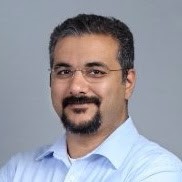
Sameer Brij Verma (Kamalnayan Bajaj Fellow Class 8) raises USD 150 milion for new early-stage venture fund, Northpoint Capital. Northpoint Capital will focus on early-stage investments, aiming to back between 15 and 20 startups with initial investments ranging from USD 1 million to USD 8 million. More
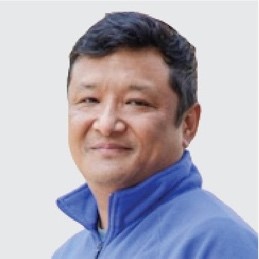
Karma Paljor (Kamalnayan Bajaj Fellow Class 6) Editor-in-Chief of EastMojo, was conferred with the Khangchendzonga Kalam Puraskar 2025. More
FELLOW ENGAGEMENT
Nandini Singla (Kamalnayan Bajaj Fellow Class 5) at Executive Public Leaders Programme of the Blavatnik School of Government in Oxford University
The Executive Public Leaders Programme is an intensive two-week programme bringing senior public sector leaders to Oxford to learn from world-renowned scholars, outstanding practitioners and one another, in highly interactive discussions, debates and simulations.
The programme is designed for those at the top of their department, ministry, agency, commission, or multilateral organisation, in roles such as permanent secretary, director general, general manager, secretary general, executive director, managing director, or the equivalent.
This was done in partnership with AGLN/McNulty.
“I thank Ananta Aspen Centre India and the Aspen Institute for giving me the opportunity to participate in the impactful Executive Public Leaders Programme at the Blavatnik School of Government in Oxford University. The carefully curated two-week programme with interesting modules, exercises and case studies as well as enriching interactions with 16 extraordinary public service leaders from across the world, left me inspired by success stories of those who overcame great challenges to usher in remarkable transformations in public service. It was reassuring to see how leadership challenges and ethical dilemmas are universal and to learn that one can explore non binary options that can enable us to deftly navigate them with creative and practical tools. As an Indian diplomat, it was also inspiring to see how India’s rising global profile affords bureaucrats like me a once-in-a-generation opportunity to meaningfully contribute to India’s vibrant transformation. Thank you Aspen and Ananta!!”
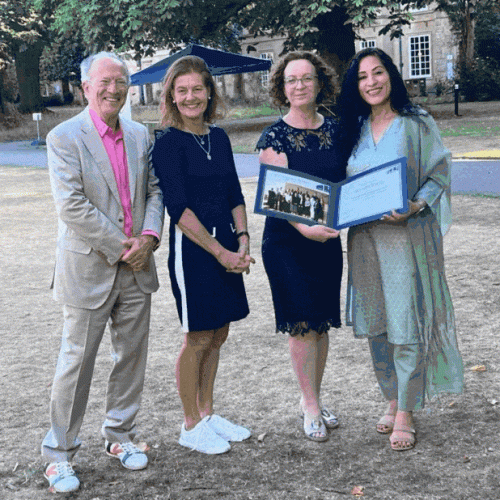
UPCOMING EVENTS
Ananta Godrej Ideas India Ananta Aspen Emerging leaders Fellowship GP Birla Fellowship for Women Leaders Class 5 Seminar 2 |
























